FINANCE Minister Pravin Gordhan likened South Africa’s energy crisis to a "kick in the ankle" or a "sportsman with a knee injury" in the wake of load shedding last week due to wet coal following Eskom’s declaration of four energy emergencies since November.
Mr Gordhan said South Africa had to be "honest" with itself that energy was a "structural constraint" on the economy, after large parts of the country experienced load shedding on Thursday, raising the spectre of the rolling blackouts which hit the country in 2008.
There appears to be disagreement on the extent of the crisis in Eskom itself, with chairman Zola Tsotsi and CEO Brian Dames at odds over the problem.
The country’s energy woes were pounced on by opposition parties two months ahead of the fifth democratic election. They accused the African National Congress (ANC) government of failing to deliver in this area.
Speaking at an ANC briefing on its election manifesto in Parktown on Monday, Mr Gordhan said problems were not fatal.
"And we know the question is when do we overcome the constraint and do we actually have a plan that will do that? Yes, we do have a plan, it will require a bit of patience as we overcome that constraint," he said. "But it is not going to kill us. It’s like someone kicking your ankle hard.
"You are going to have to stumble around for a while before your ankle gets repaired. Or a sports person who has a knee problem … but you will come back and you are going to recover and you are going to make sure there is progress."
However, ANC economic transformation head Enoch Godongwana said the energy problem could have been handled differently by the outgoing administration. He said the energy crunch had severe consequences for South Africa’s economy.
"The impact is serious. Even when there is no load shedding in our areas where we live, what they do is they hide it because they ask mines to close shafts and in that respect it has an impact on the GDP (gross domestic product) figure, so the energy issue is of critical importance.
"It’s a matter we are giving the attention and the urgency it requires," he said.
Responding to a question, he said: "You are asking if there was something different we should have done, we should have anticipated delays in Kusile and Medupi and there are a number of projects in the making which can come on stream very quickly."
Mr Gordhan said what the state and the private sector could be doing better was showing a "hunger" for private investment.
"South Africans are not hungry for investment. We think we have a royal right, (that) people will come to us because we are South Africa, they will choose us ahead of everyone else. That’s not true in the real world. As the ANC and as government we need to make sure we display a greater hunger to attract investment."
The ANC declined to answer questions whether Mr Gordhan would retain his portfolio after the election. Spokesman Jackson Mthembu said Cabinet appointments were the president’s prerogative. Meanwhile, Parliament has slotted in time tonight for farewell speeches for Deputy President Kgalema Motlanthe and Minister in the Presidency Trevor Manuel.
ANC national executive committee member and former Reserve Bank governor Tito Mboweni has been the subject of intense speculation as taking over the Treasury should Mr Gordhan opt to retire.
Mr Mboweni emphasised at the briefing that the ANC manifesto referred to the need for the country to maintain macroeconomic stability, without which the party would not be in the position to accomplish the goals it had set for itself.
"The ANC will continue to support prudent monetary policy which supports a low inflation environment and employment creation and growth in the economy."
ANC leaders were unpacking the economic and job creation side of the party’s manifesto and the message emerging was that it would be doing little new in the coming term. Rather, the party is emphasising "continuity and change" by building on existing projects.
Mr Gordhan said the manifesto clearly points out how the ANC plans to deal with the "structural fault-lines" in the economy — which he believes were not written about or understood adequately.
"We are trying to take a more medium-term view in the changes and the programmes we are talking about and when we talk about economic transformation," he said.
This was not limited to two or five years, but was about the "nature" of the economy. He cited a World Bank report showing 90% of South Africa’s exports came from just 5% of its companies — a high level of concentration, which needed to be resolved.
"Many studies show that the small business sector in South Africa is actually very small compared to other countries, we have to grow it," he said.
"Black economic participation is very low in the economy and we have to do something much more substantial and creative in order to get black people to participate in the economy. So that takes you to the term we use in the manifesto — a radical economic programme, but in our historical context," he said.
With Wyndham Hartley



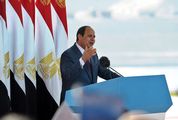

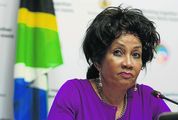



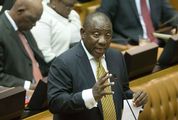
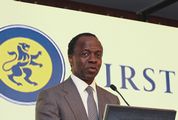
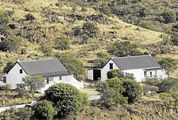




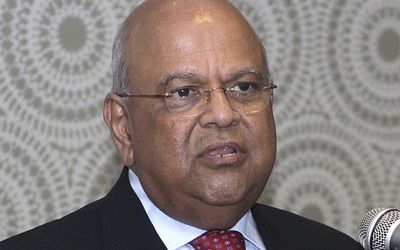









Register/Login
Close XMy News
You can only set up or view personalised news headlines when you are logged in as a registered user. Thereafter you can choose the sectors of industry in which you are interested, and the latest articles from those sectors will display in this area of your console.
Login or Register.Top Stories
My Watchlist
You can only set up or view your share watchlist when you are logged in as a registered user. Thereafter you can select a list of companies and enter your share details to monitor their performance.
Login or Register.My Clippings
You can only clip articles when you are logged in as a registered user. Thereafter you can click on the "Read later" icon at the top of an article to save it to this area of your console, where you can return to read it at any time.
Login or Register.Change: -1.21%
Change: -1.31%
Change: -1.11%
Change: -1.12%
Change: -2.16%
Data supplied by Profile Data
Change: 0.00%
Change: 0.00%
Change: -1.21%
Change: 0.00%
Change: 0.00%
Data supplied by Profile Data
Change: -0.38%
Change: -0.27%
Change: -0.34%
Change: -0.45%
Change: -0.19%
Data supplied by Profile Data
Change: 0.00%
Change: 0.00%
Change: 0.00%
Change: 0.00%
Change: 0.00%
Data supplied by Profile Data